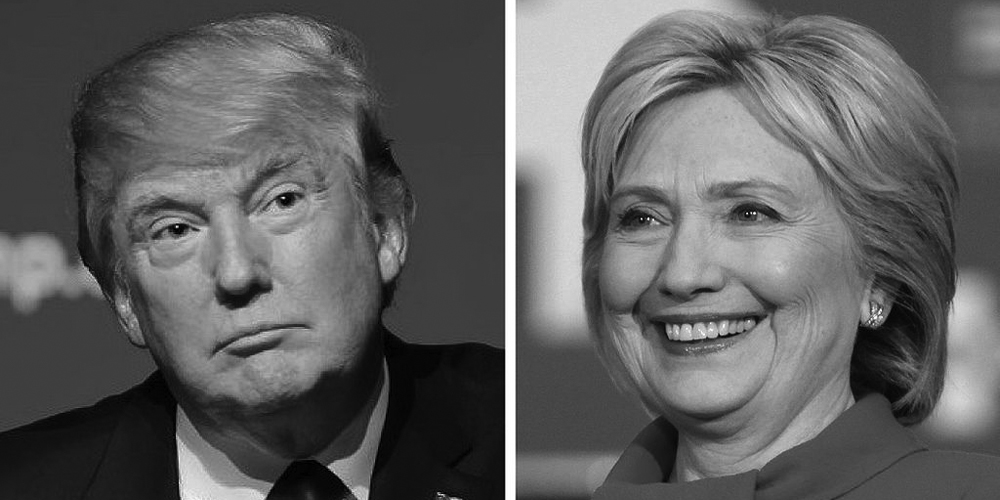Asymmetric campaigning
How Donald Trump changed the electoral game to win the Presidency When the US withdrew from Vietnam in 1973, a world super power had been effectively defeated by a small insurgency. The Viet Cong used asymmetric warfare to overcome the US...
How Donald Trump changed the electoral game to win the Presidency
When the US withdrew from Vietnam in 1973, a world super power had been effectively defeated by a small insurgency. The Viet Cong used asymmetric warfare to overcome the US superiority in conventional warfare. This asymmetric warfare has much in common, 40 years later and a continent away, with Donald Trump’s election campaign: a weak outsider, running an unconventional campaign triumphed over a powerful opponent running a largely conventional campaign. Trump’s use of asymmetric campaigning was entirely rational. If he had confronted Hillary Clinton in a more conventional way, he would almost certainly have lost.
Trump’s use of celebrity, conspiracy, vulgarity and divisiveness allowed him to dominate news cycles, shift the nature of the debate and force Clinton into a defensive stance. Clinton’s powerful advantage in conventional campaigning, which many predicted would provide her with an easy election victory, was counteracted by Trump’s embodiment of change which appealed to mass anti-establishment feeling. Over the course of Trump’s march to the White House, his campaign became increasingly sinister and bellicose; reaching a climax with his claim that the election was rigged against him. Trump went on to disprove his own conspiracy theory by winning the presidency.
Weak on policy, Trump focused his campaign on personality and controversy, reducing Clinton’s policy and debating advantage. Campaigning with a vow to lock up his opponent, he was able to push anti-establishment sentiment to the extreme. His controversial claims altered the electoral game, delegitimising Clinton and breaking democratic norms. On the other side of the campaign, Clinton, in adopting Michelle Obama’s motto “when they go low, we go high”, was unable to generate the same levels of attention as her opponent or even to confront his accusations effectively enough.
Despite traditional media editorially supporting Clinton, there was a financial incentive for the media to run Trump stories as it increased audiences and boosted advertising revenue. The sheer amount of coverage Trump received enabled him to gain more regular headlines than he otherwise deserved.
Social media provided another platform for Trump to gain significant, often radical, support. Through hashtags and memes Trump’s campaign messages were echoed and Clinton’s vilified. Trump’s net activists exploited traditional media’s support for Clinton, claiming it as evidence of conspiracy and rigging against Trump. Clinton’s highly professional and safe online campaigning sharply contrasted with Trump and his supporters’ unapologetically brazen use of social media. Beyond this, the ‘echo chamber’ nature of social media platforms, led to overconfidence in the Clinton camp and both sides became deeply polarised.
Trump made conspiracy theories mainstream politics. Conspiracy theories fed off of anti-establishment sentiment, suggesting that not only had Clinton failed, but that she was actively working against the interests of the American people. Fighting a conventional campaign, it was difficult for Clinton to respond effectively to Trump’s various accusations. Conspiracy theories helped establish Trump’s anti-establishment credentials and furthered his campaign by delegitimising his opponent. However, in doing so he also delegitimised the institutions he now hopes to govern with.
Overall, Trump’s campaign was successful because he changed the nature of the election, shifting the debate to personalities, insults and insinuation rather than policies and parties. Trump stripped away Clinton’s advantages by subverting the norms of campaigning: whilst Trump capitalised on his anti-establishment credentials, Clinton’s conventional campaign compounded her image as being firmly part of the establishment.
Some commentators have suggested that Trump’s triumph gives hope that Jeremy Corbyn could achieve a similar outsider election victory. However, Corbyn will struggle to be viewed by the public as an anti-establishment candidate in the way Trump was.
Firstly, no matter how radical Corbyn is, he will still be portrayed as part of the socially liberal, metropolitan elite. Currently, it is the socially conservative right who are better placed to position themselves outside the “politically correct”, socially liberal consensus.
Secondly, whilst Corbyn’s stances are seen by some to be extreme, they are not as outlandish or ridiculous as, for example, building a wall across the country. Corbyn won’t be using race, nationalism or xenophobia, which were all key to Trump’s campaign. Unlike Trump, a Corbyn campaign is unlikely to attract quite as much frenzied coverage. UK television news is less market driven with 48 per cent of UK adults getting their news from the BBC. One area which Corbyn has potential to excel is on social media where he, like Trump, has a committed group of online activists acting as a powerful mouthpiece.
Despite the leader of the opposition being seen by many as a political outsider, Labour cannot win a wholly asymmetric election campaign. For Labour to succeed it must convince the public that it is the champion of all people and not polarise society the way Trump’s campaign has just done. Equally, Labour cannot just “go high, when they go low,” as Clinton did. It must find new dynamic campaigning methods. This is essential to prevent another election giving power to the likes of Donald Trump.

